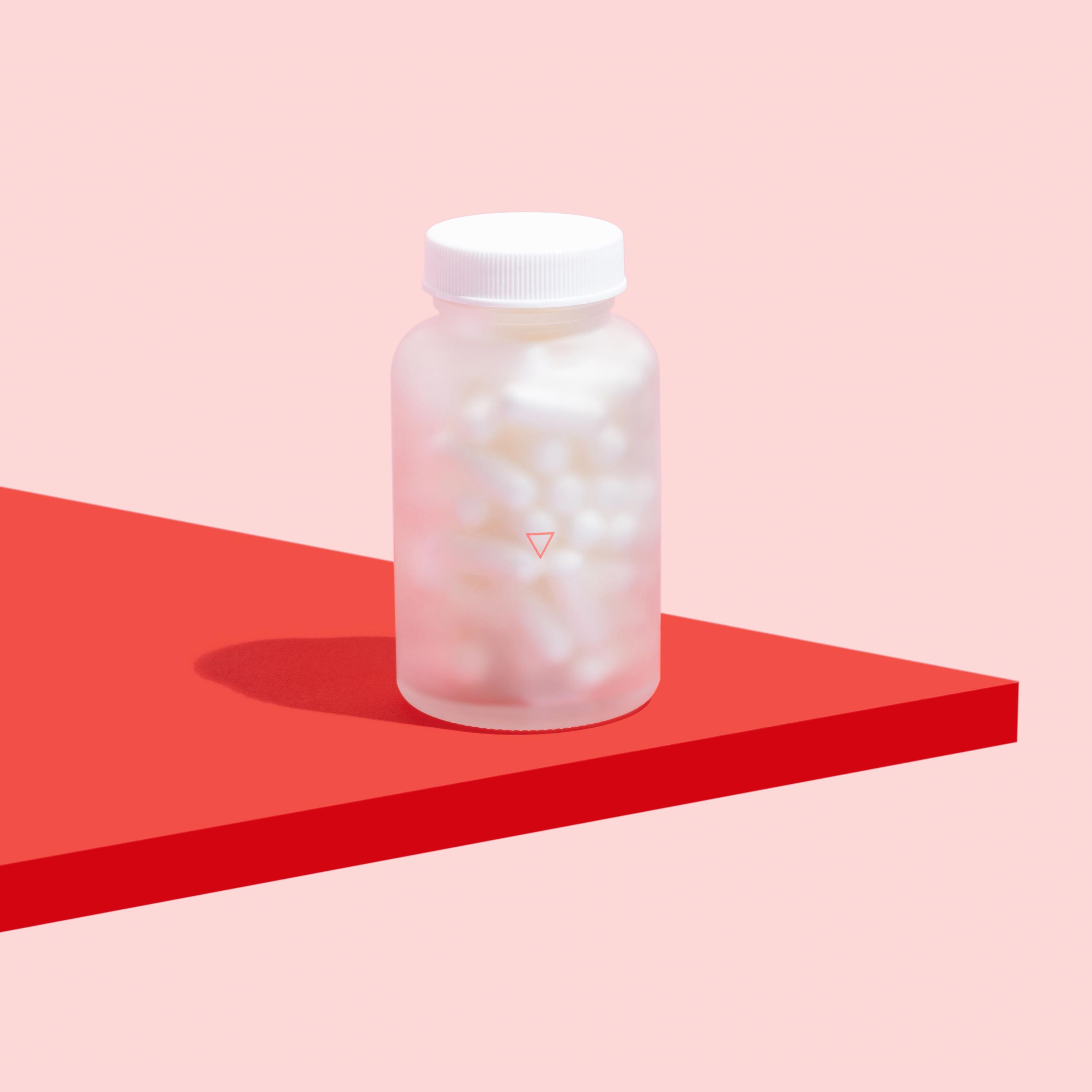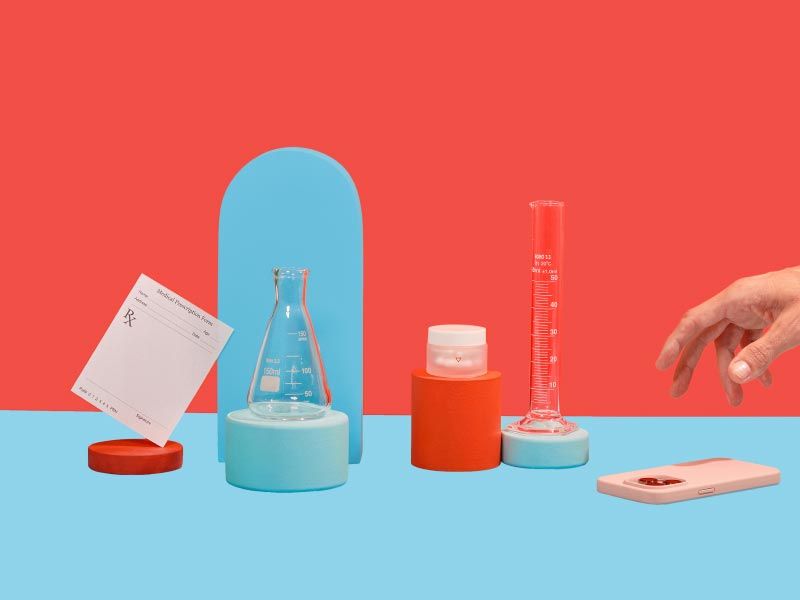
What are the Most
Common Treatments for STDs?
By Lizzie De La Cruz
October 25, 2024
Whether you’ve had one yourself or not, sexually transmitted diseases (STDs), sometimes also referred to as sexually transmitted infections (STIs), are some of the most common health issues in the world today. And when we say they’re common, we mean it! An estimated 20 million new STI cases happen each year in the US alone.
Luckily for us, STDs are often preventable and treatable if addressed early. Or better yet, you can test yourself regularly and stop STDs before they even spread! So, in the name of stomping out stigma, let’s talk about what to do if you test positive for an STD. Read on to learn about the three most common STD treatments out there today, which STDs can’t be fully treated, and why it’s important to get regularly tested if you are sexually active in any way.
Antibiotics for STDs
Many of us already know and love antibiotics for getting rid of painful UTIs and pesky bacterial vaginosis. But did you know that antibiotics are also the most common STD treatment? While they don’t work for all STDs, antibiotics are the go-to treatment for STDs caused by bacteria or parasites. That means antibiotics can treat the following STDs:
- Gonorrhea
- Syphilis
- Chlamydia
- Trichomoniasis
While they’re not technically STIs, you can also treat M. hominis and ureaplasma with antibiotics! These two infections can be passed through sexual contact and are often triggered by sex, but they can also develop on their own.
If you think you’ve been exposed to an STD or start feeling any suspicious symptoms, the most important thing is to test and get treatment as soon as possible. It’s easy to understand why you might avoid seeking medical help out of fear or embarrassment. But, putting off treatment can lead to long-term complications like inflammation and infertility, while treatment upfront is a simple round of antibiotics!
How effective are antibiotics for STDs?
Over 2.5 million cases of chlamydia, gonorrhea, and syphilis were reported in the US in 2022. And while that number isn’t great, the good news is that those bacterial STDs are treatable with antibiotics–and they’re almost always curable. But, how effective are STD treatments, really? Well, the antibiotic doxycycline cures over 95 percent of chlamydia cases in women with vaginal or rectal chlamydia. The same antibiotic is just as effective for men with chlamydia with over a 95 percent treatment rate.
As for gonorrhea, the CDC-recommended STD treatment is a one-time antibiotic injection–which is 99 percent effective! You can still access gonorrhea treatment online with an oral antibiotic, but the recommended route is an injection. Why is the injection preferred? That’s because there are concerns about how easily gonorrhea can develop antimicrobial resistance, making oral treatment less effective.
The only STD treatment for trichomoniasis is an antibiotic called Metronidazole, which cures 85 to 95 percent of cases. Notably, the effectiveness of this treatment goes up when the sexual partner is also treated! This is the case with most STD treatments, so it’s important to have your partners tested and treated, too.

DoxyPEP
A prescription antibiotic that can help reduce the risk of STDs.
Starting at $22.00
Get Started
Valacyclovir & Acyclovir For HSV-2
Prescription antiviral pills used to prevent & treat outbreaks
Starting at $15.00
Get Started
Acyclovir Cream 15ml
Prescription cream used to relieve uncomfortable symptoms of cold sores and genital herpes outbreaks.
Starting at $69.00
Get StartedSymptom management plans
While some STDs can be cleared up and even cured with the right prescriptions, others are with us for the rest of our lives. Broadly, bacterial infections can be cured while viral infections cannot. The most common example of this is herpes, which is caused by a virus and isn’t curable. This is why many people who contract herpes are put onto STD treatments that are actually more like symptom management plans.
There are two types of the herpes virus: herpes simplex virus 1 (HSV-1) and herpes simplex virus 2 (HSV-2). Typically, HSV-1 deals with cold sores and HSV-2 is associated with genital herpes. But, either virus can cause outbreaks in either area! This virus can’t be cured, but with the right symptom management plan it shouldn’t disrupt your life.
How to manage herpes symptoms
If you have herpes, managing the severity of your symptoms and the frequency of outbreaks is the name of the game. There are two ways to do this:
- Suppressive treatment
- Episodic treatment
If you experience frequent herpes outbreaks, you might consider a suppressive treatment plan. This means you take prescription antiviral medication like Acyclovir or Valacyclovir every day, with some pretty great results! Suppressive therapy reduces HSV-2 outbreaks by 70 percent and makes it significantly less likely that you pass on the virus to a partner.
If your outbreaks are less common, you might use episodic treatment. This means you take antiviral medication only when you feel an outbreak coming on. Antivirals help heal outbreaks faster and reduce their severity.
If you’re unsure which STD treatment route is right for you, reach out to a healthcare professional to discuss your options! You can work together to develop a personalized symptom management plan. Besides a prescription of either cold sore or genital herpes antivirals, you might try herbal preventative treatments to keep outbreaks at bay and hydrocolloid patches to help promote faster healing. Combining medications and lifestyle changes will help keep herpes from disrupting your days and reduce your chances of spreading the infection to others.
Vaccines
While many of us today are thinking about vaccines to solve the pandemic, vaccines have also been integral in reducing the spread of STDs across the globe. Vaccines are not STD treatments per se. Instead, they are actually preventative measures that can help stop people from being infected by one of the most common STDs: human papillomavirus, or HPV.
Almost everyone will be infected with HPV at some point during their lives, with around 90 percent of those infections disappearing on their own within two years. But, when certain HPV infections linger, they can lead to genital warts and cervical cancer. So, the development of an HPV vaccine is a pretty big deal! If you haven’t been vaccinated yet, consider checking in with your healthcare provider to see if the HPV vaccine is right for you.
Online STD treatments
When it comes to STDs, the best plan of attack is to talk to a licensed medical provider about your symptoms–and get tested regularly! Wisp is dedicated to helping you find the right treatment plans for STDs, all while being discreet and sensitive to your needs and situation. With a team of providers who take your health needs seriously, we can help you get the right STD treatments, with an additional option to test for STDs at home.
If you have tested positive for an STD or want to discuss a possible infection with a medical provider, schedule a quick and easy online STD consult with us right away. We can help you get the diagnosis and treatment you need so you can get back to your normal life faster and with more confidence.



